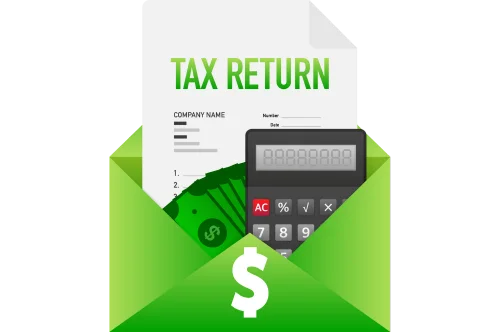How High Taxes Encourage Black Money and Tax Evasion
Taxation is an essential tool for governments to generate revenue for public services and infrastructure development. However, excessively high taxes can lead to unintended consequences, such as tax evasion and the accumulation of black money. When individuals and businesses perceive the tax burden as unbearable, they often resort to illegal means to reduce their tax liabilities. In this article, we will explore how high taxes contribute to black money and tax evasion, the consequences of these practices, and potential solutions to create a fair and effective tax system.
Understanding Tax Evasion and Black Money
Tax evasion refers to the illegal act of avoiding tax payments by individuals, businesses, or other entities. It often involves underreporting income, inflating deductions, or hiding money in offshore accounts. Black money, on the other hand, refers to unaccounted-for income that is not reported to tax authorities. Such money is generated from legal or illegal activities but is kept hidden to avoid taxation.
The Link Between High Taxes and Tax Evasion
Increased Tax Burden: When tax rates are too high, taxpayers may feel that a significant portion of their earnings is being taken away. This perception encourages them to find ways to reduce their taxable income, leading to tax evasion.
Encouragement of the Informal Economy: Excessive taxation forces businesses to operate in the informal sector, where transactions are conducted in cash to avoid tax liabilities. This not only reduces the tax base but also promotes an unregulated market economy.
Discouraging Compliance: When individuals and businesses see that tax rates are unreasonably high, they may feel justified in evading taxes. They might perceive the system as unfair, believing that the money they pay is not used efficiently by the government.
Complex Tax Laws: High taxes often come with complicated tax regulations that create loopholes. Instead of paying their fair share, wealthy individuals and corporations hire tax consultants to exploit these loopholes and minimize their tax payments.
Capital Flight: High taxes can drive capital out of the country as businesses and investors move their wealth to jurisdictions with lower tax rates. This capital flight negatively impacts economic growth and reduces the availability of domestic investment.
Consequences of Tax Evasion and Black Money
Revenue Loss for the Government: When a significant portion of income is hidden from tax authorities, the government loses substantial revenue. This affects public services, infrastructure projects, and social welfare programs.
Economic Inequality: Tax evasion benefits the wealthy and large corporations that can afford to hide their wealth. Meanwhile, middle-class taxpayers and small businesses bear the brunt of the tax burden, leading to greater economic disparity.
Inflationary Effects: The circulation of black money can lead to artificial inflation, making goods and services more expensive and reducing the purchasing power of honest taxpayers.
Encouragement of Corruption: Black money fuels corruption by facilitating illegal transactions, bribery, and other unethical practices. This weakens the rule of law and erodes trust in the government.
Weakening of Financial Institutions: Tax evasion reduces deposits in the formal banking sector, limiting the availability of credit and investment opportunities. This hampers economic growth and financial stability.
Measures to Reduce Tax Evasion and Black Money
Lowering Tax Rates: Implementing moderate and reasonable tax rates can encourage compliance, making taxpayers more willing to fulfill their obligations. A fair tax rate reduces the incentive to evade taxes.
Simplifying the Tax System: A straightforward tax structure with fewer loopholes and clear regulations can make it harder for individuals and businesses to evade taxes. Transparency and ease of compliance lead to better tax collection.
Encouraging Digital Transactions: Promoting digital payments and discouraging cash transactions can help reduce black money. Electronic transactions leave a financial trail, making tax evasion more difficult.
Strengthening Tax Enforcement: Governments should invest in advanced data analytics, artificial intelligence, and robust tax audit mechanisms to detect and penalize tax evaders effectively.
Incentivizing Voluntary Disclosure: Offering amnesty programs or reduced penalties for those who voluntarily disclose undisclosed income can help bring black money into the formal economy.
Enhancing Public Trust in Governance: If taxpayers see that their money is being used efficiently for public welfare and infrastructure development, they are more likely to comply with tax regulations willingly.
Conclusion
While taxation is necessary for the functioning of a country, excessively high taxes can backfire by encouraging tax evasion and the growth of black money. When people perceive the tax system as unjust or overly burdensome, they look for ways to circumvent it. Governments must strike a balance between generating revenue and ensuring that taxes remain fair and reasonable. By simplifying tax laws, lowering rates, promoting digital transactions, and strengthening enforcement, authorities can reduce tax evasion and improve compliance. Ultimately, a well-structured tax system benefits both the government and taxpayers, leading to a more stable and prosperous economy.
Our Tax Services

ITR Filing
ITR Filing services provide full assistance with Income Tax Return submissions, ensuring accurate and timely compliance with all tax regulations and statutory requirements for both individuals and businesses.

Tax Audit
A tax audit reviews financial records to ensure compliance with tax laws, verifying income, deductions, and expenses. It minimizes errors and helps businesses avoid penalties, ensuring accurate tax reporting.

E-Commerce Tax Services
Navigating taxes as an e-commerce seller can be challenging due to the unique complexities of online businesses. Here’s a quick overview of the essential tax services that can help simplify compliance and optimize tax savings



